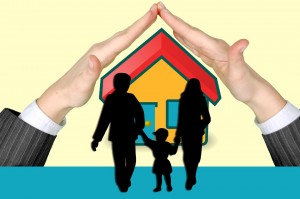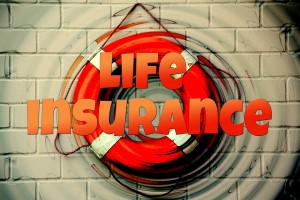 Courtesy of iii.org With blizzard conditions predicted to hit 16 Eastern states this weekend, there will be a high probability of car crashes and property damage so it’s a good time to understand what your insurance covers, according to the Insurance Information Institute (I.I.I.).
Courtesy of iii.org With blizzard conditions predicted to hit 16 Eastern states this weekend, there will be a high probability of car crashes and property damage so it’s a good time to understand what your insurance covers, according to the Insurance Information Institute (I.I.I.).
“Standard homeowners policies provide coverage for damage caused by wind, snow, severe cold and freezing rain,” said Jeanne M. Salvatore, senior vice president and chief communications officer of the I.I.I. “Car accidents caused by slippery road conditions are also covered under standard auto insurance policies.”
The I.I.I. offers the following information on insurance coverage:
Auto Policies
Standard homeowners insurance covers:
- Vehicle crashes between two or more drivers caused by snowy and slippery roadsunder liability insurance, which is required by most states.
- A car that crashes into an object, such as a light post or medianunder the optional collision portion of an auto policy.
- Physical damage to a vehicle caused by heavy wind, flooding or fallen ice or treeunder the optional comprehensive portion of an auto policy.
Homeowners Policies
Standard homeowners insurance covers:
- Wind-related damage to a house, its roof, its contents and other insured structures on the property. Also, wind-driven snow or freezing rain that gets into the home because the home was damaged by wind.
- Tree limbs that fall on a house or other insured structure on the propertythis includes both the damage the tree inflicts on the house and the cost of removing the tree, generally up to about $500.
- Damage from ice and other objects that fall on the home.
- Damage to the house and its contents caused by weight of snow or ice that creates a collapse.
- Freezing conditions such as burst pipes or ice dams, a condition where water is unable to drain properly through the gutters and seeps into a house causing damage to ceilings and walls. However, there is generally a requirement that the homeowner has taken reasonable steps to prevent these losses by keeping the house warm and properly maintaining the pipes and drains.
- Additional living expenses (ALE)In the event a home is severely damaged by an insured disaster, ALE would pay for reasonable expenses incurred by living elsewhere while the home is being fixed.
Damage caused by flooding is not covered by either standard homeowners or renters insurance policies. Melting snow that seeps into a home from the ground up would be covered by flood insurance, which is provided by FEMA’s National Flood Insurance Program, and a few private insurers. Flood insurance is available to both homeowners and renters.
“Consumers who need to file an insurance claim should contact their insurance professional as soon as possible,” said Salvatore. “Let your agent know the extent of the damage and start to document your loss with lists, receipts or photographs. If you have a home inventory, now would also be a good time to access it.”
Information on how to prepare your home against winter-related damage can be found at the Insurance Institute for Business & Home Safety (IBHS).

 During deer season, which generally runs from October through December, there is a dramatic increase in the movement of the deer population. Many of these deer find their way onto highways and into suburban neighborhoods. As a result, more deer-vehicle collisions occur in this period than at any other time of year.
During deer season, which generally runs from October through December, there is a dramatic increase in the movement of the deer population. Many of these deer find their way onto highways and into suburban neighborhoods. As a result, more deer-vehicle collisions occur in this period than at any other time of year..png) FIRE LOSSES
FIRE LOSSES Are you prepared to deal with a flood? How about a power outage? What’s your plan if there’s a hurricane coming? (Planning a hurricane party is not the correct answer.) If you have never planned for disaster, this is your time. September is
Are you prepared to deal with a flood? How about a power outage? What’s your plan if there’s a hurricane coming? (Planning a hurricane party is not the correct answer.) If you have never planned for disaster, this is your time. September is